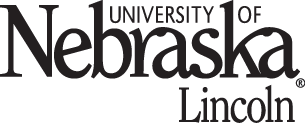Holocaust survivor shares her stories
Bea Karp speaks to Wilson Middle School and Thomas Jefferson High School iJAG students in Wilson's lecture hall on Thursday. The 82-year-old Omahan spent time in a Nazi concentration camp in France during World War II.
Bea Karp went for a walk in London two days after arriving from France to reunite with family following World War II.
"As I was walking, suddenly I felt so good," she said. "It was like a big weight had been lifted off my shoulders. I started humming and skipping."
Karp had just had an epiphany: "Suddenly, I realized at the age of 12, I realized I didn't have to be afraid anymore."
The moment came after she and her sister survived the murder of millions in concentration camps, including the loss of her parents, at the hands of Nazis during the Holocaust.
"That is what freedom means to me: not having to be afraid," Karp told a group of Iowa Jobs for America's Graduates students from Wilson Middle School and Thomas Jefferson High School during an assembly Thursday.
Karp shared her story in the memory of her parents.
"That's why I like to speak about my experiences," she said. "It is also in memory of the 6 million Jews that were murdered and a million and a half children."
Another 5 million also died at the hands of Adolf Hitler's government "because they did not have the same philosophy as Hitler," she said.
“It was a very sad time, a dark time in our history,” Karp continued. “But sadly enough, what’s going on today is also not very good. It’s scary what’s happening.”
One student asked her bluntly: “Do you think our country does enough to stop genocide now?”
“No,” she replied. “The good people, the good countries, should get together and work toward that.”
Karp described growing up in a small town in Germany as the Nazis came to power, including being driven from her home to a small apartment in the city. One day, as a young girl, she was playing in the alleyway when she saw two Nazis walking down the sidewalk.
“I had never seen Nazis up close before,” she said.
A feeling, a new emotion, overwhelmed her.
“That emotion was hatred,” she said. “I hated these people. They were causing all of our problems. And, as they passed by, I went to the gutter. I picked up some pebbles, and I threw those pebbles at them.”
She escaped the chase that followed, but her mother was furious with her, banning her from playing unsupervised. Soon she was enrolled in school, until Jews were barred from them, where she was first exposed to prejudice as she was called “dirty Jew” and “Christ-killer” by other children.
“Be tolerant,” Karp told the students at Wilson. “You don’t have to love everybody, but accept people for who they are.”
She described seeing her father disappear and be forced into labor after attempting to save artifacts from a burning synagogue on Kristallnacht.
“The German people must have known what was going on,” she said, reflecting on a point about which she said she has often wondered. “There were so many fires; there was so much noise. They must have seen it.”
“How come after that night they didn’t stand up and say to Hitler enough is enough?” she continued. “But they didn’t stand up, and no one else stood up for the Jews. No country, no people, nobody. That give Hitler the green light to murder so many Jews.”
On Oct. 24, 1940, her father’s birthday, Karp and her family were driven out of their apartment and put on a train to the Gurs concentration camp in southwestern France. She described people being shot as they tried to jump off the train and flee.
Life in the camp was appalling. Karp said she at one point got so hungry she took a piece of cheese away from her sister. She said many people were driven to behave like animals, and then she told a story about her father.
She and her sister went to visit their father in an adjacent camp — after she stubbornly kicked a Nazi guard on his leg and called him “you dirty pig” before daring the guards to stop her.
“We had a good visit,” she said. “He could hardly believe we had come to see him. He was so overjoyed.”
Then one lesson happened she will remember the rest of her life.
“They were handing eggs out to everybody,” Karp said. “I could hardly believe it. We had never had an egg in the camp, and I remembered in Germany they were rationed.”
Her father, an orthodox Jew, stirred the whites and yolk together with his finger before becoming agitated.
“There was blood in the egg,” she said. “I knew what that meant. Because, like I told you, my father was an orthodox Jew. Orthodox Jews follow certain dietary laws.”
She assumed he would make an exception when starving, though. But instead he threw the egg against the wall, prompting her to begin running to lick the splattering before it reached the floor.
“Just as I got there, I happen to turn around,” she said. “I see the expression on my father’s face. I couldn’t do it. I was angry with him. I didn’t understand why he did such a thing.”
Only with time did she come to understand her father’s convictions.
“It was quite a lesson,” Karp said. “What he was saying to us is this: I have no control as to what the Nazis do with me physically, but mentally I still have a choice. Either I can do what is right or I can do which is wrong, or which I shouldn’t be doing.”
Some had decided to eat the egg. But others had resisted the Nazi mind game.
Eventually, she and her sister made their way out of the camps and into the protection of a Catholic boarding school convent in northern France. Karp said she told one of the nuns she wanted to stay there, even if that meant she had to convert to Catholicism.
The nun told her if she felt that way after the war, she could return to the convent. But she urged her to remember her upbringing until then.
“It was at that time that I remembered my father’s teachings, and I also remembered the egg,” Karp said. “If I turned Catholic, I would be giving up my heritage, my parents and my sister. So I stayed Jewish.”
After London, she moved to New York in 1947, and eventually she settled in Omaha. The 82-year-old has four children and seven grandchildren.
“Every grandchild for me is an answer to Hitler. We are all living. You did not win,” she said to the applause of the students. “I found out about a month ago I am going to be a great-grandmother.”
She told the iJAG group they are lucky to be living in the United States, and she urged them to remember the lessons of the Holocaust as they consider their obligations as citizens by voting.
“You are the future of this country,” she said. “It is up to you to make sure that we always enjoy the freedom that we have now.”






